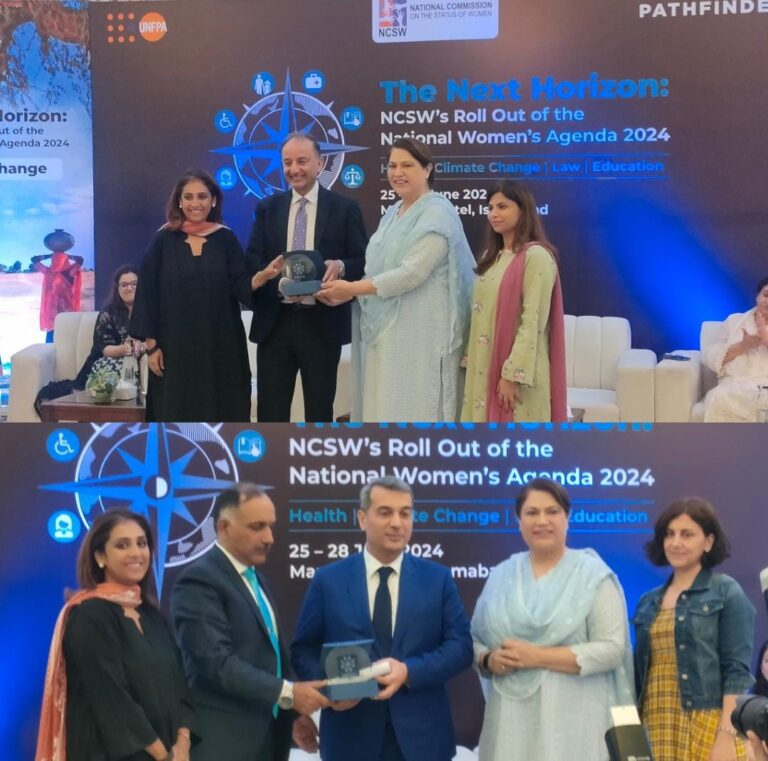The National Commission on the Status of Women (NCSW) hosted the pivotal conference “From Vulnerability to Resilience: Gender Climate Action in Pakistan” in partnership with Pathfinder and UNFPA at the Marriott Hotel, islamabad.
This event reinforced NCSW’s dedication to fostering gender-inclusive climate resilience strategies in Pakistan. The conference gathered a diverse group from all provinces including goverments, climate activists, community leaders and private sector. NCSW Chairperson Nilofar Bakhtiar opened the session, highlighting the critical role of women in addressing climate change. She noted, “With 80 percent of those affected by climate change being women and children, their inclusion in decision-making is essential.”
Chief Guest Lt General Inam Haider Malik, Chairman of NDMA, stressed the urgent need for proactive climate policies. “Pakistan must move beyond a reactive stance. We need immediate and effective policies to counter the looming crisis,” he urged.Notable contributions included a captivating speech by humanitarian and singer Shehzad Roy, and insights on the ” Advancing the leadership of women and girls for better health and climate resilience Surmi Project” from Madiha Latif, Country Director of Pathfinder International Pakistan. Ambassador Khazar Farhadov of Azerbaijan discussed gender-inclusive climate strategies in anticipation of COP29, while environmentalist Samar Khan shared her firsthand experiences of climate impact on livelihoods and winter sports.
The conference featured thematic working groups focused on women’s preparedness, climate-induced gender-based violence (GBV), health impacts, and livelihoods.Nilofar Bakhtiar launched the “National Agenda on Women and Climate Change in Pakistan,” outlining key recommendations including: the immediate roll out of the Climate and Gender Action Plan, educational institutionalization of climate literacy, and investments in women leadership for climate action.
It was emphasized to strengthen local level institutions for enhanced coordination and development of gender specific budget allocations to address Gender Based Violence and ensure gender based violence response is integrated across all climate and emergency policies.Further, investments in climate resilience healthcare infrastructure were underscored, with a focus on comprehensive Family Planning and Maternal Health Services. The need to focus on alternative and climate smart agriculture practices, involvement of private sector in early alert system, and women economic resilience was stressed upon.
The event concluded with a keynote address by Musadik Malik, Federal Minister for Water Resources reflected on the dire situation of gender disparity within the public and private spaces. He spoke passionately of the continued socioeconomic losses and disproportionate vulnerability to death and violence of women and girls as a result of climate shocks.He highlighted the intersections of climate and health underscoring the need of increased representation of women and girls in policy making.









